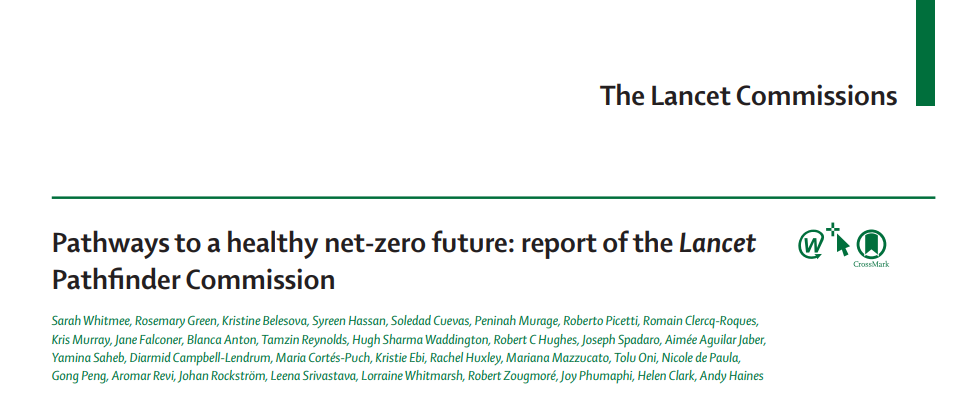The Lancet Pathfinder Commission’s report, “Pathways to a healthy net-zero future,” comprehensively analyses the pressing need for deep and swift reductions in greenhouse gas emissions. The goal is to limit global temperature increases to 1.5°C above pre-industrial levels. Notably, the report emphasizes that the current pace of progress is not sufficient to achieve the objectives of the Paris Climate Agreement and mitigate future risks posed by climate change.
Moreover, it stresses the importance of policy packages that merge ambitious demand reduction, efficiency, and renewable energy measures. It notes that actions focusing on demand reduction are often relegated to the fringes of climate mitigation policy frameworks, net-zero scenarios, and efforts to measure and gauge health benefits. Furthermore, the report critiques the over-reliance on integrated assessment models for envisioning long-term scenarios, highlighting their limitations and advocating for a more holistic approach.
In addition, it also tackles the issue of global justice. It emphasizes the inequalities in per-capita emissions and underscores the need for a just and equitable transition to net-zero emissions. Acknowledging the work of the WHO Council on the Economics of Health for All, it highlights the poor climate and health outcomes engendered by the existing economic system.
Overview
Pathways to Net Zero
Delineates three main pathways for climate change mitigation actions to yield health advantages: reducing air pollution, promoting healthy, sustainable diets, and encouraging increased physical activity through active travel and public transport. Likewise, it also discusses the potential risks of failing to limit global temperature rises to 1.5°C above pre-industrial levels.
Summarizes a method for harmonizing data from various climate change mitigation studies and their co-impacts on human health. It includes calculating two intensity measures: the carbon mitigation intensity (measured in kilotons of CO2eq reduced per 100,000 inhabitants per year) and the health co-impact intensity (measured in years of life lost per 100,000 inhabitants per year). These measures allow for comparisons between heterogeneous studies from different sectors, greenhouse gases, health pathways, and varying spatial and temporal scales. However, due to several assumptions made during the data harmonization process, these comparisons should be considered approximate rather than definitive.
Key Messages
- Climate mitigation actions, as evidence suggests, deliver significant health benefits. We urgently need to hasten progress towards a net-zero emissions future.
- Health benefits stem from reducing air pollution, endorsing sustainable diets, and fostering the use of public transport.
- We must factor health benefits into implementing the Paris Climate Agreement to maximise health gains and achieve climate targets.
- Enhanced research can bolster ambitious climate action. We must emphasise determining mitigation actions’ impact on health and greenhouse gases.
- We need systems approaches to enable transformative change across sectors and improve health equity with net-zero emissions. We urgently need examples of transformative action.
- A proposed coalition aims to speed up progress towards net-zero emissions and improve health. This coalition commits to assessing the effects on health and greenhouse gas emissions.
Role of Sectors
Discusses the contributions of different sectors in achieving net-zero emissions, including the energy, transport, buildings, industry, and land-use sectors. It underlines the potential of policies to transform car-dependent systems and the importance of enhancing natural or modified ecosystems to deliver biodiversity benefits while simultaneously addressing societal challenges.
Conclusion
Finally, the report emphasizes significantly reducing greenhouse gas emissions to achieve a healthy net-zero future. It highlights the potential health advantages of such emissions reductions and the necessity for a comprehensive approach to tackling climate change from a health perspective.




